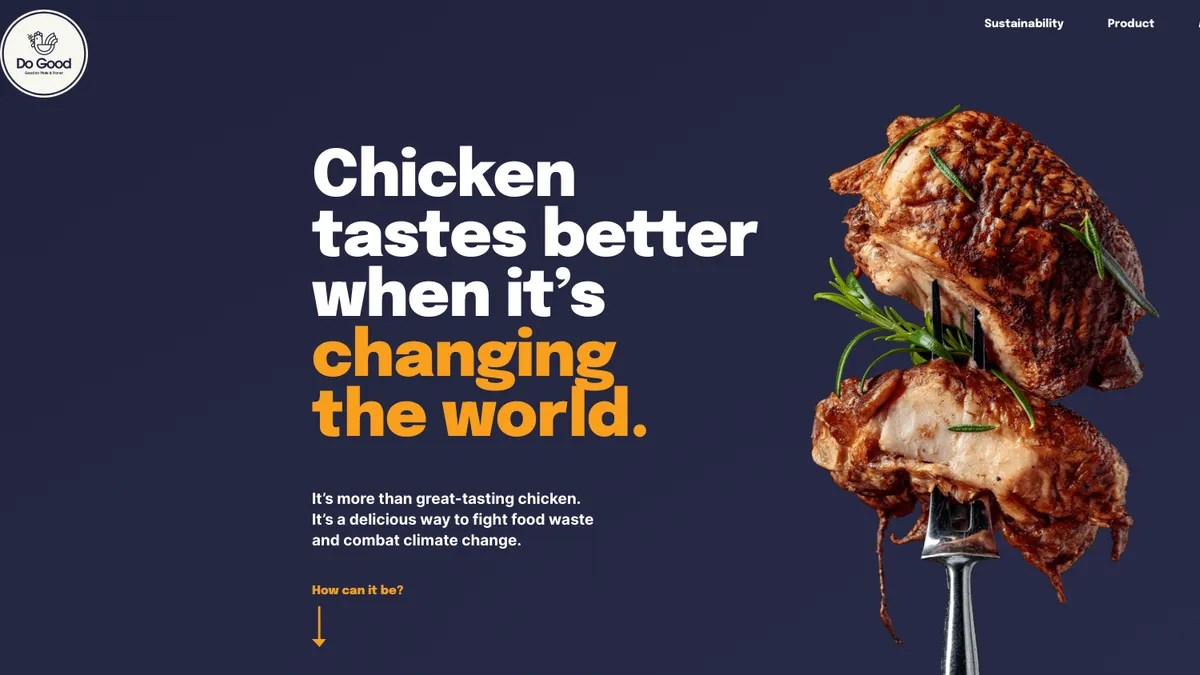Dive Brief:
- Do Good Foods, a newly launched company formed to turn upcycled food waste into feed for animals intended for human consumption, has started operations backed by $169 million from asset manager Nuveen, according to a press release on Tuesday.
- The company has built a production facility in Fairless Hills, Pennsylvania, capable of processing 160 tons of excess food from about 450 grocery stores per day.
- Do Good Foods expects to introduce its first product, Do Good Chicken, in supermarkets as well as restaurants and other foodservice locations in the United States early next year.
Dive Insight:
Do Good Foods has developed a closed-loop system to convert produce and meats that cannot be sold in grocery stores or used by food banks into nutrient-dense animal feed. It plans later to expand beyond chicken, but did not say what its next product would be. Each package of Do Good Chicken will keep 1 pound of food waste from being wasted, according to a website the company set up to promote the product.
The company plans to pick up food waste from grocery stores using reusable coolers at no charge to grocers. It intends to build production facilities similar to its initial facility in Pennsylvania during the next five years, according to the press release.
Do Good Foods describes the poultry it plans to sell as carbon-reduced chicken and says its goal is to increase the sustainability of animal protein production by keeping food waste from winding up in landfills.
Do Good Foods was formed by Hal, Matt and Justin Kamine, founders of Kamine Development Corp., which says it invests in technologies that have a social benefit. The food company's team includes Sam Kass, who served as chef and nutrition policy advisor to former President Barack Obama, who serves as chief strategy officer for the company, the press release notes. Former U.S. Secretary of Agriculture Ann Veneman is also involved with the company, according to the announcement.
Do Good Foods is launching its business as grocery chains step up their focus on sustainability and look for ways to cut food waste. Supermarkets throw away about 43 billion pounds of food every year accounting for 10% of all food waste in the U.S., according to the Upcycled Food Association.













